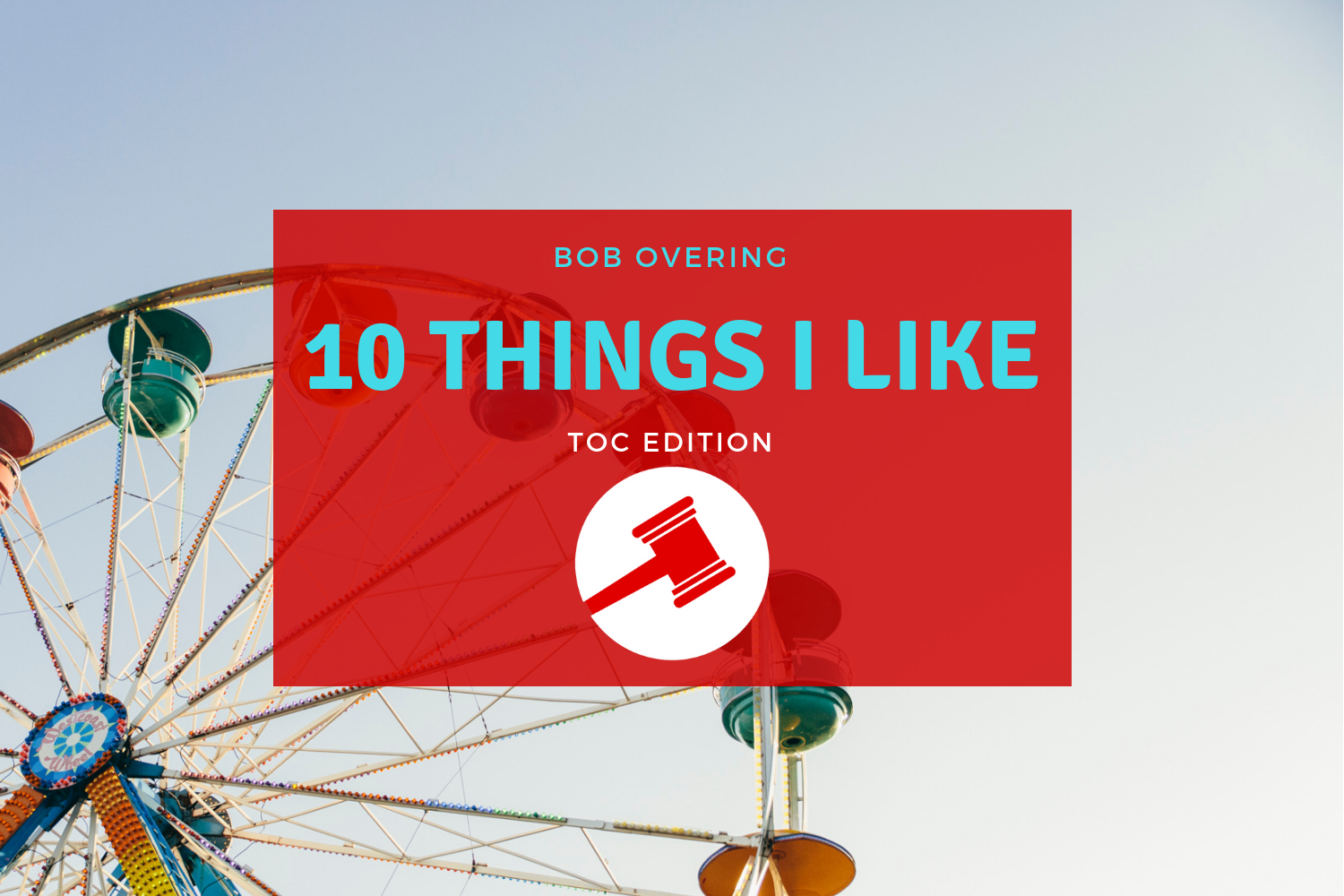Util/Trutil with Tom Placido: Planning for the 1AR

Planning for the 1AR
Welcome back to our second installment of Util/Trutil. Today’s topic is 1AR strategy when reading a plan.
Before I get into the various 1AR tactics that you can deploy when reading a plan, there are a few notes to keep in mind about reading a plan in general. In order to capture the strategic advantages that I will outline later, an affirmative plan must be sufficiently specific and narrow. Specificity is important because it gives you a trump card in debating about your advantages. Your solvency evidence, for example, should be specific to the mechanism and scope of the plan that you advocate. Many plans will have an advantage area that is specific to some geographical region, but when it comes to the solvency evidence, they just read the same cards that stock affirmatives read on the topic. If your evidence is more specific, then you can more easily avoid debating the same solvency blocks that negatives read against stock affirmatives. Take the current topic as an example. If you were reading a plan that Egypt should implement Spain’s system of presumed consent, for example, it is much easier to win the solvency debate in the 1AR if your cards are specific to Spain’s mechanism and preempt many of the generic solvency turns that negatives would read about Belgium or Brazil.
Second, plans need to be sufficiently narrow, but not too narrow. This is a bit of an arbitrary line to draw, but there is certainly a happy medium between a plan that is too generic and hyper-specified. If the plan is too broad in scope (defending “all just societies” or conceding in CX that all disadvantages link to your plan), then you have simply thrown a plan text onto a stock AC. The affirmative will gain none of the advantages but risks incurring many potential downsides of actually debating a plan. On the flip side, making the plan overly specific risks making a 1AR theory debate potentially unwinnable. It is much easier to defend the theoretical legitimacy of implementing presumed consent in the US or UK than it is to defend implementing presumed consent amongst the Yupik peoples of Siberia.
Holding the two above assumptions to be true, there are three general strategies that the affirmative should be prepared for in order to deliver an effective 1AR. The purpose here is not to answer a 7-minute prep-out of your specific plan, but instead to offer strategy tips to answer common negative arguments in the 1AR.
- Plans Bad Theory
One of the most common instinctual reactions to a plan to which the negative doesn’t have specific answers is to read theory. These interpretations may be narrower than simply “plans bad,” but most negatives will make arguments of two flavors. First, the negative will make a ground argument that plans narrow the debate to a topic where the affirmative has a quantitative and qualitative advantage in the arguments available. Second, the negative will make a predictability argument that plans are less predictable than stock affirmatives and place an unreasonable research burden on the negative.
In answering ground-based objections, the aff gains a significant advantage from reading a plan that is well located within the topic literature. This does not mean that there exists one BlogSpot article that has the word “Siberia” within 10 (conveniently minimized) words of the term “presumed consent.” But if you defend presumed consent in the UK, for example, it is easy to demonstrate that there is a robust and balanced body of topic literature surrounding your plan, potentially turning the neg’s ground standard. Moreover, the plan offers ground-based advantages based on its specificity. Since the aff is held to a clearly delineated plan text, it is much less likely for the aff to de-link from negative disadvantages that apply to the plan text. Even if the negative has a lower quantity of arguments to read against a plan, the guarantee that those arguments will be relevant by the 2AR is sufficient compensation. Also, keep in mind that the affirmative also sacrifices a significant quantity of ground in selecting a plan text, meaning concerns of argument quality likely trump argument quantity.
With regard to predictability, the affirmative will find it hard to lose theory debates if the plan is disclosed on the NDCA case wiki. This article is not meant to be a robust defense of the merits of disclosure, but the negative does lose a ton of credibility in proving that the plan is unpredictable when the entirety of the plan is on the glorious World Wide Web. The question of research burdens largely depends on the scope of the affirmative plan. Contrary to popular belief, there do not exist an infinite number of affirmative plans on a given topic (excluding last year’s Jan/Feb, which had literally infinite plans). When the resolution itself is actually narrow and worded neutrally, the number of plans is limited by the topic and all debaters should be able to research them. That being said, some resolutions may as well be: “Resolved: Excluding the affirmative defending a specific plan, morality ought to be valued above justice.” While some debate niches might rejoice at such a topic, it’s with resolutions like that one that I want to tell my debaters to find a partner.
Lastly, it’s worth noting that plans are more theoretically defensible under a view of fairness that does not rely on norm creation. The aff will be much better equipped to answer theory if they do not have to defend the concept of plans as a general principle. If the aff has to defend any possible plan that anyone could read, the aff will lose most theory debates. Rather, the aff should have a specific plan for how they defend plans.
- Framework
Another common strategy that negatives will use to “answer” plans is to contest the framework and leave the substance of the plan untouched. Often, the negative will read a “dump” of generic answers to utilitarianism, and then contest the specific warrants read in the aff framework. First, 1ARs should be prepared and practiced on defeating the worn out blips that debaters use to answer util. These arguments follow the following formula: include the words “calculation” and “predict” as many times as possible in a sentence, and then add a negative modifier. Most of these arguments tend to question whether utilitarianism can be “implemented” or applied as a moral theory rather than whether it is a “true” moral theory, so pre-empting this debate in the AC can be very useful. If you have questions about any one of these arguments in particular, comment below!
Second, AC frameworks should be constructed with a diversity of framework warrants that don’t rely on winning a 9-card syllogism. If you can win the framework debate via an extinction first argument, a policymaking argument, and a real world education argument, the 1AR can selectively choose which arguments to go for and avoid a decent amount of the NC’s dump. Arguments for epistemic modesty can also be particularly persuasive in the 1AR if the negative has conceded the entirety of the aff advantages.
Lastly, the 1AR should turn whatever means-based NC the negative reads. There is great strategic value in constructing multiple outs for the 2AR, and being able to sit on turns to an NC for 3 minutes can sometimes be an effective strategy when the repetition of “calculation” and “predict” becomes insurmountable for the aff. One way to do this is to include aff advantages that more obviously relate to common NCs to turn the neg contention. Another is to win a no act-omission distinction argument independent of the aff framework so impacts from the aff count toward the neg’s side constraint.
- Impact Turns
The last strategy that negatives will often use to answer the plan is impact turns, most notably in response to warming or economy advantages. When you construct a plan, you should keep in mind that defending your impacts is just as important as defending your solvency. If you read terminal impacts that have the potential to be impact turned, then you should construct 1AR blocks that can deal with these arguments quickly and effectively. The 1AR doesn’t have an abundance of time to read cards, so the best strategy in answering impact turns is to have a good extension of your terminal impact that answers some of the internal warrants of their evidence. Then, you should pick the single best card that defends your impact to read afterwards. Note the distinction between an impact card and a card that defends your impact. Reading two sentences of the Bearden card in the 1AR to answer dedev is not going to get the job done. Instead, you need a card that has a more robust defense of why your impact is empirically verified, probable, and results in a significant negative harm. Finally, you should do evidence comparison with whatever impact turns the negative has read, since these arguments tend to be poorly constructed, taken out of context, or just simply outdated.
As a final note, remember that the purpose of this discussion is to better equip the affirmative to respond to common negative generics read in response to a plan. Obviously responding to a specific counterplan or the Politics DA will require much more work and some specific evidence on the part of the affirmative. However, these general tips should make affirmatives much more equipped to plan for the 1AR.
Agree, disagree, or have an idea for a future topic? Leave a comment on the post or on Facebook!




5 Comments
Solid article. Two things to add.
Tom notes that plans good c-inerps should also beat back norm creation. A popular, time-efficient alternative is to narrow the counter-interp to exclude the whole issue. The interp “The aff may read a plan that implements soft opt-out in the UK” also excludes all the “but you could have defended serbia!” responses.
Also, impact turns were popular last Jan/Feb, but I haven’t seen too many on Sept/Oct due to the topic. When affs don’t defend the US, many popular impacts make way less sense. Also, most neg strats focused on low-impact CP’s like incentives, conscription, required choice, and education. So instead of impact turning a Xeno advantage in a AC, negs would just link turn it by claiming to solve better via the CP.
“negs would just link turn it by claiming to solve better via the CP”
^Not a link turn 😉 <3
leave me alone at least I tried larp is hard :'( </3 :'( </3 :'( </3 :'(
“Another is to win a no act-omission distinction argument independent of the aff framework so impacts…” What comes after?
This argument might not be your entire strategy, but it’s a good hedge against 2NRs that over-cover the debate on their own framework but might miss this type of framework argument that impacts the contention-level. You could concede important components of the neg framework (e.g. rights matter or autonomy matters) but contest when violations or transgressions of their criterion occur. If you’re defending a consequentialist framework, you should always make this or similar arguments in the 1AR, especially if you have it set up with a no act-omission distinction argument in the aff.